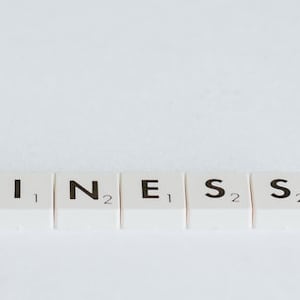make faces: Idiom Meaning and Origin
What does ‘make faces’ mean?
The idiom "make faces" means to distort one's face in an exaggerated or funny way to express emotions like disgust, annoyance, or humor.

Idiom Explorer
The idiom "straight face" means to keep a serious or expressionless demeanor, hiding any signs of amusement or emotion.
The idiom "make the bald man cry" means to bring someone to tears or intense emotional distress. It is often used humorously to describe the extreme emotional impact of something.
The idiom *make strange* refers to the act of behaving in an unfriendly or unfamiliar way towards someone. It suggests a change in one's attitude or demeanor towards another person, often leading to a strained or awkward relationship.
The idiom "make someone's teeth itch" means to annoy or irritate someone greatly.
The idiom "make someone's skin crawl" means to cause a strong feeling of discomfort or disgust in someone.
The idiom "make someone's jaw drop" means to surprise or shock someone to the extent that their mouth hangs open in astonishment.
The idiom "make someone's ears sad" means to say or hear something that is upsetting, disappointing, or disheartening to someone.
The idiom "make someone's day" means to do something that brings joy or happiness to someone, often by doing a small act of kindness or providing a pleasant surprise.
The idiom "make over" means to transform, change or improve someone's appearance, often through a new hairstyle, makeup, or clothing.
The idiom "make light of" means to minimize or downplay the importance or seriousness of something.
Linguistic Expressions Unveiled
The idiom "make faces" is a common expression in the English language. It is used to describe the act of contorting one's facial expressions in a deliberate or exaggerated manner. The act of making faces can convey a range of emotions and reactions, from subtle smirks to extreme displays of disgust. This idiom has been in use for centuries and can be found in various languages and cultures, making it a widely recognized and understood phrase.
"make fun of" is another idiom that is related to "make faces". When someone uses the expression "make fun of", they are referring to the act of mocking or ridiculing someone or something. This can be done through verbal jokes or gestures, including making faces. Making faces can be a playful and lighthearted way to mock or imitate someone, adding an additional layer of humor to the act of making fun of others.
Similarly, "make a mockery of" is another related idiom. When someone says they are making a mockery of something, they are essentially saying they are making fun of it in a way that undermines its seriousness or importance. Making faces can be seen as a form of mockery, as it involves distorting one's facial expressions to exaggerate a certain emotion or reaction. By making faces, individuals can add a touch of humor and lightheartedness to situations that might otherwise be taken too seriously.
Another related idiom is "make a scene". This idiom is used to describe the act of causing a scene or creating a disturbance in a public setting. Making faces can be a part of making a scene, as contorting one's facial expressions in an exaggerated manner can draw attention and create a spectacle. The act of making faces in a dramatic or attention-seeking way can contribute to the overall impact of making a scene, adding a visual element to the disturbance.
Lastly, "make strange" is a related idiom that refers to behaving in an unusual or peculiar manner. Making faces can be considered a form of making strange, as it involves contorting one's facial expressions in a way that is not typical or expected. By making strange faces, individuals can convey a sense of quirkiness or eccentricity, adding an element of surprise or novelty to their behavior.
The idiom "make faces" is a versatile expression that is used to describe the act of contorting one's facial expressions in a deliberate or exaggerated manner. This idiom has been in use for centuries and can be found in various languages and cultures. In addition, it is related to idioms such as "make fun of", "make a mockery of", "make a scene", and "make strange". These idioms highlight the different ways in which making faces can be used to convey emotions, mock or imitate others, create a spectacle, or behave in an unusual manner. Overall, the act of making faces adds depth, nuance, and humor to communication, making it a widely understood and recognized idiom in today's society.
Example usage
Examples of how the idiom "make faces" can be used in a sentence are:
- She made funny faces to entertain the children at the party.
- He couldn't help but make a disgusted face when he tasted the bitter medicine.
- Please stop making faces during the serious conversation, it's disrespectful.
More "Expression" idioms



